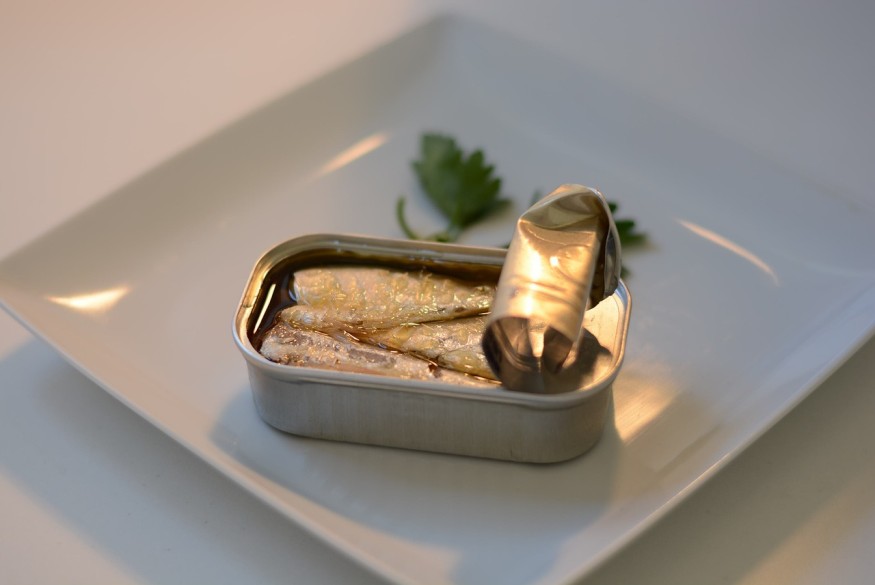
High blood pressure affects nearly half of all adults in the U.S., and excessive sodium intake can exacerbate this condition, increasing the risk of heart disease. While canned goods are often associated with high sodium levels, they can still be part of a blood pressure-friendly diet with careful selection.
Adopting the Dietary Approaches to Stop Hypertension (DASH) diet, which limits sodium intake to 2,300 mg per day, is recommended. Choosing low-sodium or no-salt-added canned options and rinsing them can reduce sodium content significantly.
Here are dietitian-recommended canned foods that can help manage blood pressure, according to Eating Well:
1. Canned Spinach
A single cup of canned spinach provides over 5 grams of fiber, along with potassium, magnesium, and calcium-all beneficial for cardiovascular health. Green leafy vegetables like spinach are also rich in nitrates, which aid in relaxing blood vessels, further contributing to reduced blood pressure. Research shows that regular consumption of leafy greens, such as spinach, correlates with decreased blood pressure and a lower risk of heart disease.
2. Canned Pumpkin
"Incorporating more potassium-rich foods like canned pumpkin can help balance out the negative side effects of salt on your blood pressure," says Veronica Rouse, M.A.N., RD, CDE, owner of The Heart Dietitian. A one-cup serving of canned pumpkin without added salt provides approximately 11% of the daily value for potassium, which amounts to 4,700 mg.
3. Canned Beets
"Bright red and full of antioxidants, canned beets are an excellent choice for helping to maintain a healthy blood pressure," said Laura M. Ali, M.S., RDN, a culinary nutritionist based in Pittsburgh, PA and author of the cookbook MIND Diet for Two. "They contain a variety of heart-healthy nutrients, including fiber, potassium, vitamin C and B vitamins. In addition, their beautiful red color comes from plant compounds called phytonutrients, including one called betalains-a nutrient that has been shown to help reduce inflammation and may contribute to lowering blood pressure"
Similar to spinach, beets are naturally abundant in nitrates, which Ali notes can potentially lower blood pressure and reduce heart risk. It's important to verify the label, as some canned beets may contain added sugar or salt.
4. Canned Tuna
The 2020-2025 Dietary Guidelines for Americans advocate for adults to consume 8 ounces of seafood weekly. However, many Americans fall short of this recommendation. Opting for no-salt-added canned tuna is one of our top choices: it's economical, versatile, and rich in omega-3s, which are known to reduce blood pressure. Research involving nearly 5,000 participants revealed that a mere 2 grams of omega-3s daily can significantly lower blood pressure. A 3-ounce serving of canned tuna not only offers 22 grams of high-quality protein but also serves as a notable source of calcium and potassium.
5. Canned Tomatoes
Beyond their culinary flexibility, canned tomatoes offer significant heart-healthy benefits. A half-cup serving of canned crushed tomatoes without added salt is not only low in sodium but also provides 10% of the daily recommended intake of potassium. Potassium plays a crucial role in counterbalancing the effects of sodium by promoting its excretion through urine and by relaxing blood vessel walls.
Moreover, canned tomatoes are abundant in lycopene, a potent antioxidant known for its cardiovascular benefits. Lycopene helps in preventing heart disease by combating oxidative stress and inflammation.
6. Canned Sardines
"Canned sardines are packed with omega-3 fatty acids and calcium, both beneficial for blood pressure. Omega 3's help lower blood pressure by reducing inflammation, and calcium is an important mineral in the DASH diet, an eating pattern designed to lower blood pressure," Rouse explained.
A single 5-ounce can of sardines provides a substantial quantity of heart-healthy omega-3s, delivering 18 grams of protein and meeting 20-25% of the daily calcium requirement, which is 1,300 mg. Despite their nutritional benefits, it's important to note that sardines can be high in sodium. Therefore, it's advisable to enjoy them moderately.
While canned foods are often higher in sodium, strategic choices like low-sodium varieties and rinsing can mitigate this. Incorporating these nutrient-dense options into your diet can simplify meal planning while supporting healthy blood pressure management.
